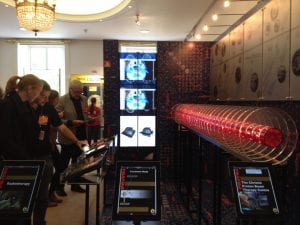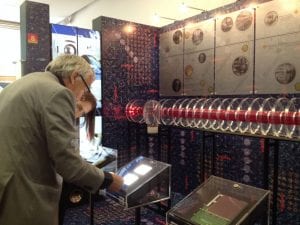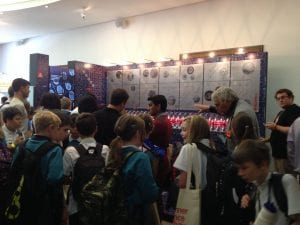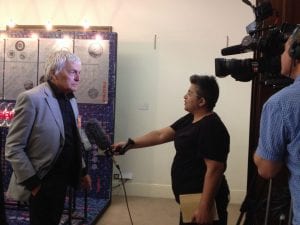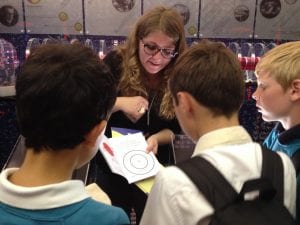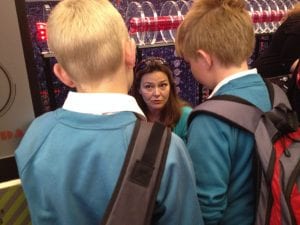A pioneering research project which aims to develop a more effective radiotherapy treatment for thousands of cancer sufferers is featured in a major public exhibition by The Royal Society.
Professor Nigel Allinson, MBE, from the School of Computer Science, University of Lincoln, UK, is showcasing the PRaVDA consortium’s ground-breaking work into cancer treatment at this year’s Summer Science Exhibition, which runs from 1st July to 6th July, 2014.
The exhibit, which will also be supported by The Christie NHS Foundation Trust, one of Europe’s leading cancer centres, will reveal for the first time the new technology (patents pending) they are developing which will improve the range of treatment options available for cancer sufferers.
The World Health Organisation estimates there are 14 million new cancer cases each year. In the developed world, it is the second biggest killer – responsible for about one in four of all deaths.
Half of all cancer patients will receive radiotherapy as part of their curative treatment. All high-energy radiation damages a cell’s DNA. Nearly all current radiotherapy uses external beams of x-rays. Protons, positively charged particles, offer a new form of radiotherapy.
PRaVDA (Proton Radiotherapy Verification and Dosimetry Applications) is a unique instrument that will let clinicians see in 3D how the protons interact with a tumour – the Holy Grail of Radiotherapy.
Proton beam therapy has the ability to deliver high doses of radiation directly to a tumour site with very little radiation being absorbed into healthy tissue.
This precision means that treatment is less likely to damage healthy tissue, vital in the treatment of tumours close to critical organs such as the brain or spinal cord. It is also particularly useful in treating cancer in children as there is less dose to healthy tissue which reduces the risk of second cancers arising later in life.
Professor Allinson said: “Bringing together clinicians, physicists, engineers and computer scientists we are developing, with support from a £1.6 million award from The Wellcome Trust, one of the most complex cameras ever envisaged – to see in detail, in 3D, how protons deposit their energy in a tumour while the patient is receiving treatment.
“We use the detectors from the heart of the Large Hadron Collider, which provided the evidence for the Higgs Boson, to track the paths of individual protons. We also use the CMOS technology from smartphone cameras to accurately determine the energy lost by the protons in our body, though there is enough silicon in our instrument to make over 22,000 iPhone cameras.
“The exhibit will show how seemingly very different scientific disciplines and the strengths of commercial silicon integrated technology can come together to provide the missing element for the full future exploitation of proton therapy for the better treatment of cancer.”
The work of the PRaVDA consortium has the potential to make this revolutionary form of treatment a viable option for thousands more cancer sufferers. Radiotherapy would be shorter and more effective and there would be opportunities to combat some common cancers which have resisted conventional treatment.
The PRaVDA consortium comprises; University of Lincoln, University of Birmingham, University Hospitals Birmingham NHS Foundation Trust, University of Surrey, University of Liverpool, University Hospital Coventry and Warwickshire NHS Trust; The Christie NHS Foundation Trust; United Lincolnshire Hospitals NHS Trust, University of Cape Town South Africa, University of Warwick, National Research Foundation (NRF) – iThemba LABS, SA , Advanced Oncotherapy Plc, ISDI: Image Sensor Design and Innovation Ltd aSpect Systems GmbH and Elekta AB (Publ). The work has been sponsored by The Wellcome Trust.
The Royal Society’s Summer Science Exhibition is the organisation’s premier public engagement event of the year, showcasing cutting-edge science and technology research in accessible and exciting ways.
